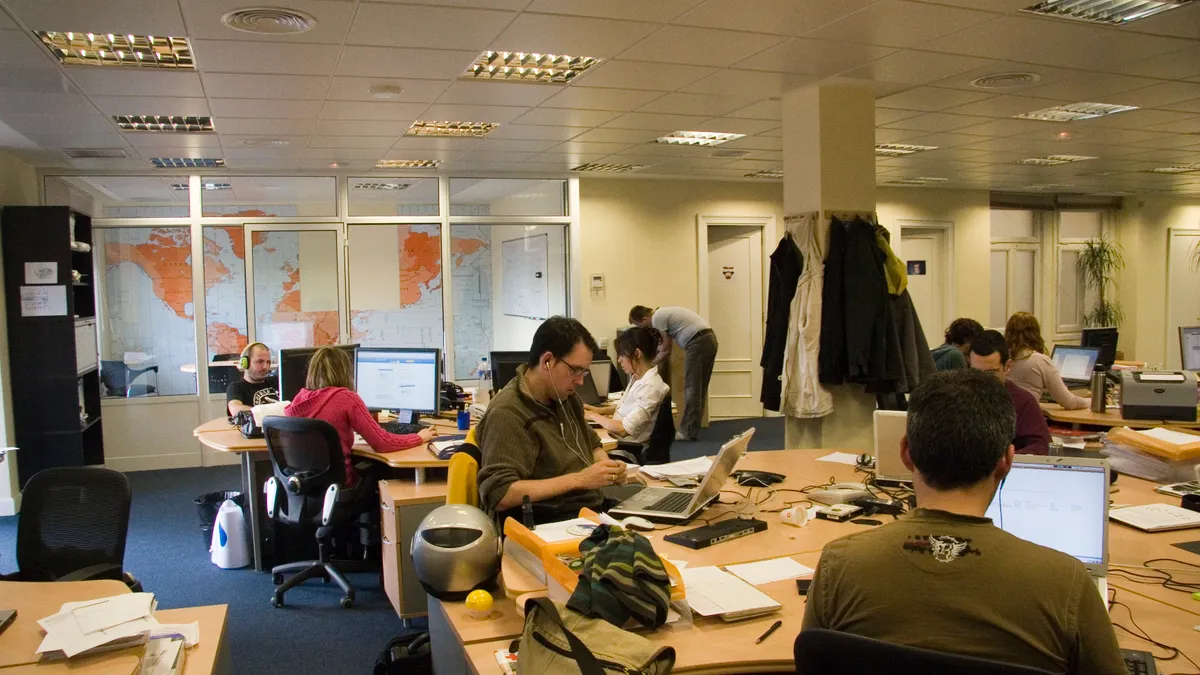Dive Brief:
- Being "always on" technologically might curb a team's ability to solve complex problems, reported Science Daily, citing a Harvard Business School study by associate professor Ethan Bernstein to be published next week.
- The study observed three groups of people, each with three members, who were assigned a complex problem-solving task. Members of one team worked alone on the task, never interacting. Members of another team took the same isolated approach, but met intermittently with each other. Members of the third team were in constant contact, like most teams are through always-on electronics. The team whose members worked alone but met once in a while performed the task with the most success, while the team that interacted constantly had the least success.
- Based on their findings, the researchers asserted that the workplace may lose productivity as always-on communication technologies infiltrate the workplace. "As we replace those sorts of intermittent cycles with always-on technologies, we might be diminishing our capacity to solve problems well," Bernstein said.
Dive Insight:
Now that employees can fire off quick questions via instant message to their bosses locked away in afternoon meetings, in-office communication is easier than ever. But over-used technology can cause seriously disruptive distractions, too. Workers in a new RescueTime study said they can't get 30 minutes of uninterrupted time at work because of digital distractions.
Not all the blame can be cast on technology, however. Workers often can't resist the urge to keep up with their email inboxes, send text messages or scroll through social media sites while they work. And many — as much as 30% — are "plugged" into work during vacation, according to a University of Chicago study. The inability to unplug or avoid feeling over-worked can trigger burnout, which, in turn, causes stress-induced health problems and worker disengagement.
When electronic communication interferes with innovation and overall productivity, employers might need to step in and advise employees on the over-use of email, text messaging, social media and other digital platforms and limit the time employees plug into the office on off-duty hours.












